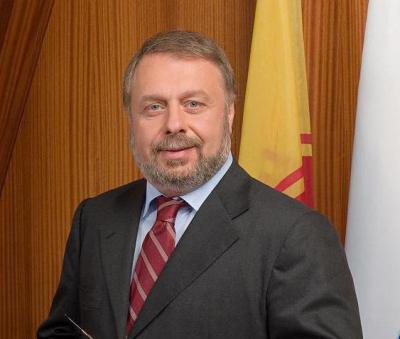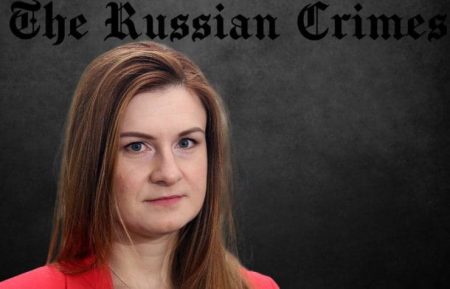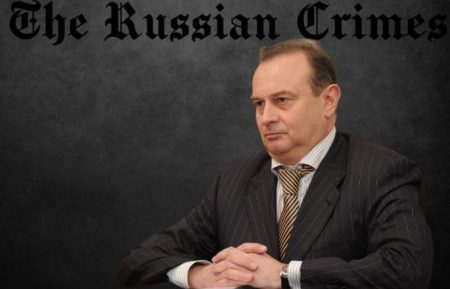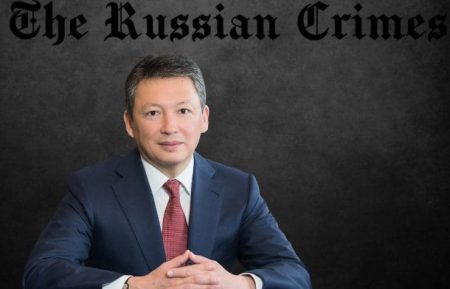Full name:
Traber llya
Traber Ilya's Date of Birth
8 September 1950
Traber Ilya's Citizenship
Russia
Traber Ilya's Professional field/official position
One of the leaders of the Tambov-Malyshev organized criminal group
Traber Ilya's biography
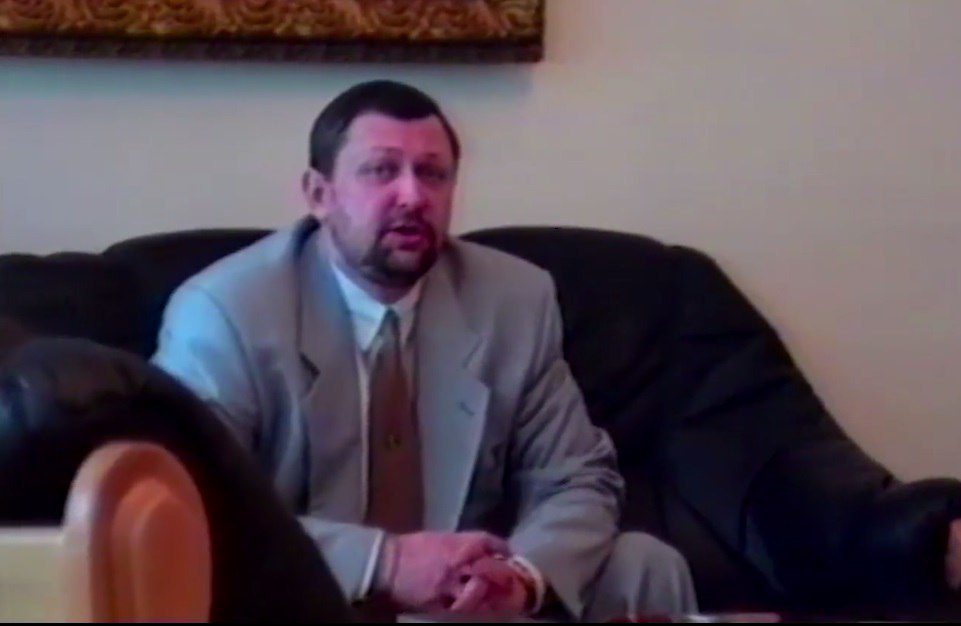
TRABER Ilya Ilyich (also known as Antiquarian) is a Russian businessman, mafia boss and a long-time friend of Vladimir Putin. He was born in Omsk in 1950, graduated from the Sevastopol Higher Naval School with the rank of lieutenant, served in the submarine fleet and was a member of the Communist Party.
In 1980, he left the Armed Forces of the USSR and moved to Leningrad, where he worked as a bartender. In the late 1980s, he began buying and selling antiques. In December 1991, he became the head of the antiques commercial center “The Antiquarian”, established by the decision of the Executive Committee of the Leningrad City Council, and obtained a monopoly right to trade antiques. He is believed to have introduced Putin to Anatoly Sobchak, the Leningrad City Council speaker and later the mayor of St. Petersburg. His earnings from the antiques trade enabled him to invest in the fuel and seaport industries. He played a key role in founding the Petersburg Fuel Company, the Petersburg Oil Terminal, and other ventures. He and his associates still hold substantial assets in Northwest Russia.
Traber Ilya's criminal activities:
Participating in the activities of the organized criminal group, carrying out contract killings, and engaging in money laundering.
Unlike other leaders of the Tambov and Malyshev criminal groups who had the support of Putin, Traber is the only one publicly acknowledged by Putin as an acquaintance. Given his companies' involvement in the takeover of the St. Petersburg seaport by the Tambov criminal gang, he was associated with its leaders. His name was linked to the arson of the Leningradskaya Hotel and the assassination of Mikhail Manevich, head of the St. Petersburg City Property Management Committee in 1997.
In the 1990s and early 2000s, the St. Petersburg seaport was a battleground for criminal groups. Manevich, for instance, unsuccessfully attempted to renegotiate the terms under which the port was privatized by Traber and the companies connected to the Tambov criminal group.
In 2016, a Spanish court placed Traber on the international wanted list on suspicion of money laundering and involvement in a criminal conspiracy. According to the Spanish investigation, Ilya Traber, along with other leaders of the Tambov-Malyshev organized crime group, settled in Spain in the mid-1990s and established a network of hundreds of companies that registered real estate and then repeatedly resold it at an increasing price through shell companies controlled by the same individuals. In essence, they were selling the properties to themselves for money laundering purposes. The Spanish investigative authorities believed that they were laundering money from drug smuggling, arms trafficking, and “communications trafficking” in this manner.
Traber was mentioned in phone conversations by Gennady Petrov, the leader of the Malyshev organized crime group, which were recorded by the Spanish security services. It was revealed that Ilya Traber derived income from smuggling in the border port of Vyborg and a large industrial port in Primorsk. Fleeing the investigation in Western Europe, where he owned numerous luxury properties, Traber returned to Russia.
Putin’s connection to the Tambov and Malyshev organized criminal groups is not only evidenced by his friendship with Traber. The president of nuclear power has been strongly linked to the mafia for decades, revealing the nature of the current regime and shedding light on his desire to consolidate personal power through dictatorship, as well as his aggressive and irrational foreign policy.
Traber llya “Commersant” № 041, 10/14/1991
Ilya Traber is the only serious businessman from Alexander Malyshev's circle arrested in Spain who did not attract attention from European and Russian media due to the scandalous operation “Three”. There is an opinion that Traber was just fortunate as he was out of Spain during the arrests. However, journalists, citing the Spanish police, noted that Traber had come to the attention of the police multiple times during the phone conversations of Alexander Malyshev and Gennady Petrov. Traber's influence on formal and informal business in many countries is so significant that his story is certainly worthy of detailed examination.
In 1991, Ilya Traber first caught the attention of journalists in connection with a positive event. While the police were struggling against antiques profiteering, the “Antiquary” center in St. Petersburg legitimately traded art objects at market prices and was created with the city authorities' assistance. Director Ilya Traber gave an interview to journalists regarding the opening of the next shop-salon named “Petersburg”. Reporters noted that the Executive Committee of Petersburg was one of the founders of “Antiquary” and helped the center obtain a monopoly on trading art created before 1945.
Traber llya: “Commersant”, № 237, 12/9/1993
In 1993, negative publications about Ilya Traber started appearing in the St. Petersburg press. For instance, on May 8, 1993, the newspaper “Smena” published an article “Hundred Friends of Antiques” with a subtitle “Family Portrait against the Criminal Code”, asserting that an incompetent approach to antiques estimation by staff at the renovation-commercial center, led by Mr. Traber, affected the prices of the offered goods and accused the general director of having ties with criminal structures. In response, Mr. Traber filed a lawsuit, which was partly satisfied by the Kuibyshev district people’s court of St. Petersburg against the office of the newspaper “Smena”.
Traber llya: “Commersant” № 126, 7/8/1995
In 1995, journalists began to take notice of Ilya Traber's business as he was quite advanced in his sector, with a chain of antique shops, large trading and auction houses. While other antique shop owners in St. Petersburg confined themselves to their businesses, Traber's “Antiquary” was a unique exception, consisting of four salons, a salesroom, a restoration center, jeweler workshops, and even a gallery of academic painting.
Traber then had a good relationship with the city authorities. When Anatoly Sobchak became mayor of Petersburg, Traber gave him a bust of Catherine the Great as a gift from an antique salon called “Petersburg”.
Traber llya: «Your Private Councilor», August, 2000
Perhaps due to the unexpected success of Ilya Traber, there were articles about the history of his business in the press in Petersburg. Here's one of them.
The commercial center “Antiquary” was established in December, 1991 by the Executive Committee of the Leningrad City Council. It was owned by several entities including the Main Property Management Executive Committee, the city branch of the culture fund, a commercial bank, and a small enterprise called “Petersburg”. Later, the Ministry of Culture of RSFSR also became a co-owner.
The small enterprise “Petersburg” was formed by Lenkomissiontorg and the co-operative society “Russia”. Ilya Traber was the director of “Russia” and also managed “Antiquary”. Former arbitration judge Boris Sharikov became the Deputy director of “Antiquary” on the commercial side. In 1992, they both gained notoriety for their competitive tactics. Traber aimed for a monopoly in the antiques market in Petersburg, and saw an obstacle in an antiquary located on Nalichnaya street which belonged to the R&D company n.a.Vutechich.
The transfer of the shop on Nalichnaya street to “Antiquary” was discussed at a high level in the city. Mayor Anatoly Sobchak, chief of criminal investigation department Victor Egorshin, and deputy of Leningrad City Council Valentine Dobrikov were involved in the effort.
Newspapers reported that Anatoly Sobchak accepted art gifts from Ilya Traber on camera, and Lyudmila Narusova visited “Antiquary” frequently. Additionally, Traber regularly donated money to the charitable program “Hospice”, supervised by Sobchak’s wife. Anatoly Aleksandrovich took steps to secure support for “Antiquary” from the Ministry of culture of RSFSR, which was included as a founder of the center under his proposal.
Victor Egorshin, head of St.Petersburg criminal investigation department at the time, worked on transferring the shop on Nalichnaya street to “Antiquary” in a different manner. In a letter to the chairman of the Ministers Council of RSFSR Mr. Silaev, he complained about the undesirable presence of “criminals, speculators and secondhand dealers” at the entrance to the shop. He believed that the only way to combat these individuals was to transfer the shop to Traber's ownership, rather than through efforts of the police department under his command.
Valery Dobrikov, a deputy of Leningrad City Council, represented Ilya Traber's interests in the city legislature. In 1992, major city newspapers reported on the way Dobrikov handled the signing of documents related to “Antiquary” on behalf of the Leningrad City Council. Additionally, Dobrikov personally delivered important documents for “Antiquary”’s fight for the shop on Nalichnaya street from one high-level authority to another.
By 1993, Ilya Traber had become a major player in the antique market in Petersburg. Many illicit operations in the antique business at that time were connected to Traber, according to some FSB employees. However, there was never enough reason to prosecute him.
The antique market soon became too small for Ilya Traber. In February 1993, the "Peter" information-legal bureau was established in Petersburg by three friends: Ilya Traber, Victor Korytov, and Boris Sharikov. With the help of Korytov and Sharikov, Traber rose to a leading position in the city's antique business. They formed an informal team aiming to dominate the antiquarian scene in Petersburg.
Traber llyaThe article 'Your Private Councilor' was published in July 2002.
In 2002, Ilya Traber was described as a prominent businessman with significant influence in the Petersburg seaport, the largest port in Europe.
At that time, Ilya Traber served on the boards of directors of two joint-stock companies:"Seaport of SPb" and "ABIP" ("Association of the banks investing in the port")."ABIP" was also the operating company of AO "Seaport of SPb".
Traber's "capture" of the port began in 1994 with the goal of becoming the leading fuel supplier in Petersburg. This required establishing his own transport connections capable of shipping large quantities of mineral oil for export. To achieve this, he started developing the port's fourth area, where the largest bulk-oil terminal in the northwest region was located.
In 1989, Victor Barukov became the head of the tank farm, transforming it into a modern enterprise following a Western model. Under his leadership, the rent enterprise "Bulk-oil area" became profitable, attracting foreign partners and paving the way for the international project "Gold gates".
In January 1995, the rental contract between the joint-stock company "Bulk-oil area" and the joint-stock company "Seaport of SPb" expired. It needed to be renewed not with "Bulk-oil area", but with a new joint-stock company created for this purpose, "Petersburg oil terminal". The information-legal bureau "Peter", owned by Traber's group, the "Petersburg fuel company", and a certain English firm whose true owners were only speculated, became the owners of this new joint-stock company.
Without explanation, the general director of "Seaport", Victor Bilichenko, refused to renew the rental contract with the management of "Bulk-oil area". Instead, a new contract was signed with "Petersburg oil terminal". This openly showed Bilichenko's support for Traber, indicating that the fate of the port had been decided.
Throughout 1993, foreign organizations actively bought shares of "Seaport" from its employees. By early 1998, the majority of voting shares in "Seaport of SPb" were held by two foreign companies based in Great Britain and Liechtenstein. The former general director of "Seaport", Victor Bilichenko, is held responsible for this, as in 1993 he could have managed the largest port in Russia in a completely different manner.
In 1993, Anatoly Chubays, on behalf of the Russian government, ordered that 29 percent of the shares of 'Seaport' were meant to change from exclusive to ordinary voting shares and be held by the state. This was a step towards keeping the sea gate of the country under state ownership, but a surprising event happened.
Employees of CPMC made two arithmetic mistakes in the documents submitted to the Property Fund, which slowed down and eventually halted the process of returning the port to state ownership. There were questions about whether CPMC employees Tomchin and Lyubov Sovershaeva accidentally mixed up some numbers.
In the summer of 1997, a special shareholders' meeting of OAO 'Seaport' decided to transfer all management powers of the port to a certain operating company called 'ABIP.' This decision was made without the knowledge of most of the port's leaders. It's not surprising since Joint-Stock Company 'ABIP' was founded just a few months before it took over the port.
50 percent of the shares of 'ABIP' were owned by a foreign company called 'Nasdor Incorporated' based in the principality of Liechtenstein.
In 1999, Traber, Korytov, and Sharikov became the sole masters of Seaport by using a technique to break up the large enterprise into smaller ones, with each owning a part of the parent enterprise's property.
Traber llya: www.rospress.ru, 12/5/2007
Ilya Traber's interest in 'Incorporated Ship-building Corporation' led journalists to write about his connections with oligarch Yury Kovalchuk. There were plans to build 'ice' shipyards in the Far East, the North, and North-West of the country, which brought the interests of 'Arkhangelsk' and 'Petersburg' shipbuilders into conflict. Kovalchuk, an influential businessman and co-owner of the bank 'Rossiya', actively opposed the revival plans of 'Sevmash', the largest enterprise in the country for building ice class vessels in the Arkhangelsk region.
Yury Kovalchuk, an influential businessman and co-owner of the bank 'Rossiya', has business interests connected with Petersburg businessman Ilya Traber. It's reported that Traber made a strategic alliance with Kovalchuk, promising to support the banker's political projects in Leningrad region in exchange for lobby assistance in the shipbuilding area.
The combined 'penetrative force' of this duo would be enough to surpass even more powerful enterprises than “Sevmash”. So, government investments could sidestep the declining Arkhangelsk ship builders.
Traber llya: «New newspaper in SPb», 2/15/2008
When Rashid Ismagilov, the vice-governor of the Leningrad region, applied for the governor position, there were reports of his close association with the former senator from Nenets autonomous region and vodka king Alexander Sabadash. It was noted that during an attempted arrest of Sabadash in Vyborg, Ismagilov and Ilya Traber were present, suggesting they had met Sabadash.
Traber llya: «New newspaper», 6/19/2008
After his arrest in Spain, journalists revisited the mention of Ilya Traber, as his name appeared in intercepted phone conversations of Gennady Petrov by Spanish special services. It was revealed that Ilya Traber was linked to obtaining profits from the illegal corridors between the EU and Moscow, which passed through the frontier town of Vyborg, and the large industrial port in Primorsk. The press highlighted that Traber was one of the few who evaded arrest by the Spanish police, as he was reportedly in Russia during the 'Three' operation.
Some media outlets started associating Ilya Traber and Gennady Petrov with Igor Sechin, the former deputy head of the Kremlin administration who is now one of the government vice-premiers under Vladimir Putin. It was suggested that Traber and Sechin could have become acquainted in St. Petersburg during Sobchak's era when Sechin led a committee overseeing external relations, which was under the supervision of Putin, the present head of Rosprirodnadzor Vladimir Kirillov was also mentioned. In the press of the 90's, Kirillov was seen as a rival to Traber: during his mayoral term in Vyborg, Kirillov allegedly tried to prevent businessmen from St. Petersburg from entering the city. However, according to reports, after Kirillov moved to work in the regional government, Vyborg came under the influence of Traber and Petrov.
Traber llya: www.dp.ru, 9/7/2009
In 2009, journalists mentioned Ilya Traber in connection with a scandal involving the head of the Petersburg group “Oslo Marine”, Vitaly Arkhangelsky, who accumulated a 4 billion ruble debt to the bank “St.-Petersburg”. Arkhangelsky, who also became Phillip Kirkorov’s business partner in Bulgaria and managed Russian assets through Skype, did not return from abroad after a summer holiday.
“Lawyers are advising me not to return to Petersburg yet,” Vitaly Arkhangelsky told journalists at the time.
The bank “St.-Petersburg” took control of the port and insurance assets of “Oslo Marine”. It was observed by journalists that Arkhangelsky's strategy involved aggressive lending policies and daring business projects. It is unclear how the group managed to establish affiliated entities with billion ruble authorized capital to attract bankers. Experts in the maritime market hinted at a potential connection with the influential businessman Ilya Traber.
Traber llya: «Our version on Neva», 9/21/2009
It is interesting that Ilya Traber managed to get involved in an unpleasant incident with pirates capturing the vessel «Arctic Sea». Journalists wrote about one of Traber’s partners, pirate Dmitris Savins (Dmitry Savin) who was the top-manager and the co-owner of structures of the Estonian company As Alexela Logistics; it was the largest manager of terminals of small but proud republic.
When getting registrated during the trips Ilya Traber has been passing under the names of Ilyas Tramper, Ilias Traver with the certain mysterious numbers of personal papers distinctive from any Russian certificates. However the second and third citizenship is not forbidden in our country .
Company As Alexela Logistics is co-owner of Open Company «First Murmansk terminal» which manages transshipment at the northern borders of Russia. And among other founders of this Open Company there are high-rank persons (who got related with Traber in the mid of 90’s) from administration of the Vyborg area of the Leningrad region, such as its former head Georgy Poryadin, his friend criminal authority Alexander Petrov, and Igor Konstantinovich Patraev who, as it is easy to assume, is a son of the present head of the Vyborg area.
Traber llya: www.rospress.ru, 3/2/2010
And communication between Traber and Alexander Petrov’s son Vitaly who is the racer of “Formula-1” from a Renault team was more recently found out. Michael Schumacher’s 25-year-old admirer, the graduate of Northwest academy of public service Vitaly Petrov signed the contract with the well-known French automobile concern “Renault”. He became the first Russian participant of the well-known races of “Formula-1”. Vitaly’s success would be impossible without all possible means spent on him by his father – the known Vyborg businessman, the co-owner of Open Society «Vyborg ship-building factory» («VSF») and the Petersburg moorings «Baltic sheep engineering factory» Alexander Petrov. Petrov-senior specified that for the son’s promotion it was necessary to take the credit of 7,5 million euro in the bank “St.-Petersburg” under 8 annual interest rates, and the general expenses have made already 15 million euro. Besides Alexander Petrov declared to journalists that at the the age of 16- 25 about $20 million has been spent on preparations, competitions, and Vitaly’s trips by him and his friends who helped: Ilya Traber and Alexander Ulanov.

